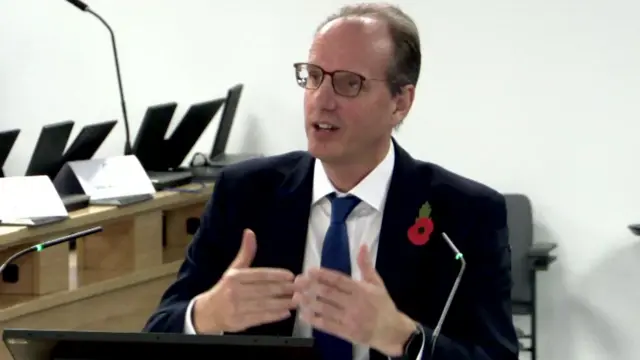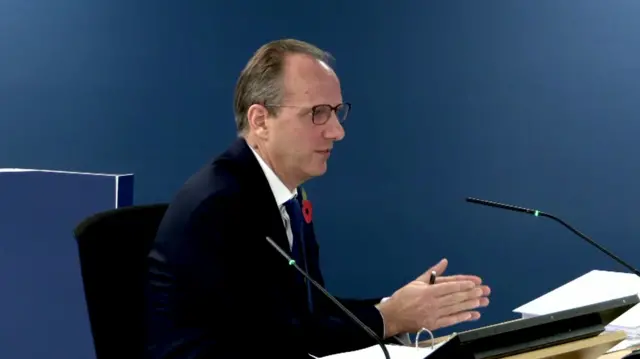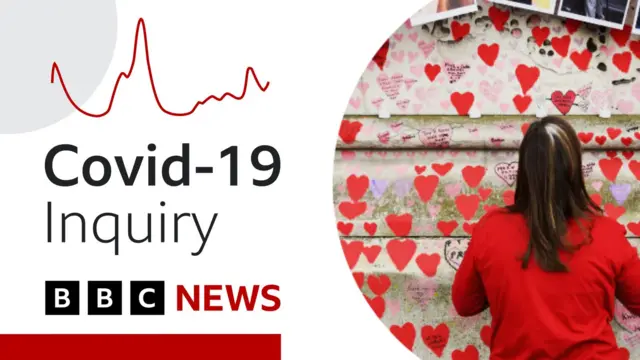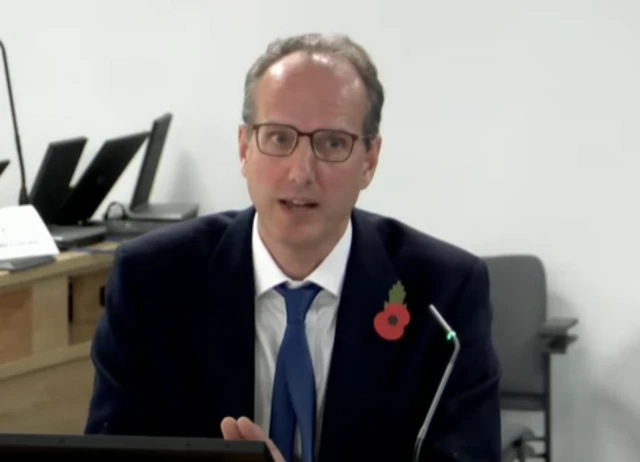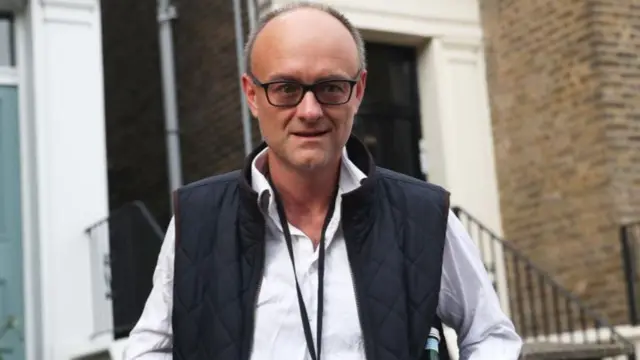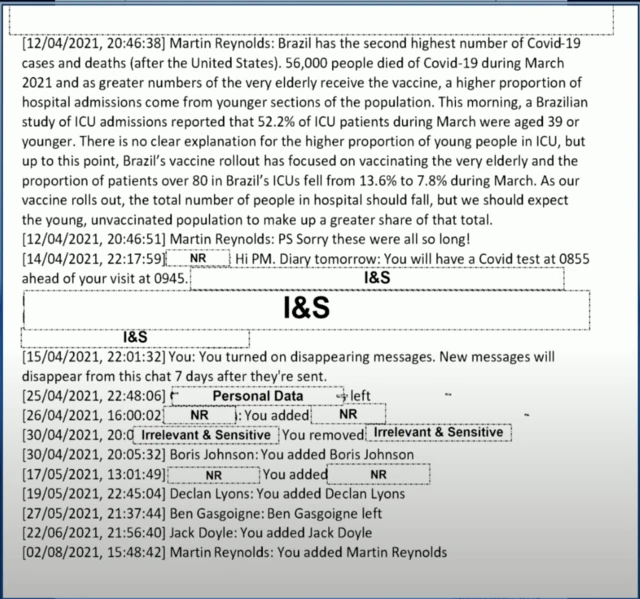Yousaf says he hasn't deleted pandemic WhatsApp messagespublished at 13:44 GMT 30 October 2023
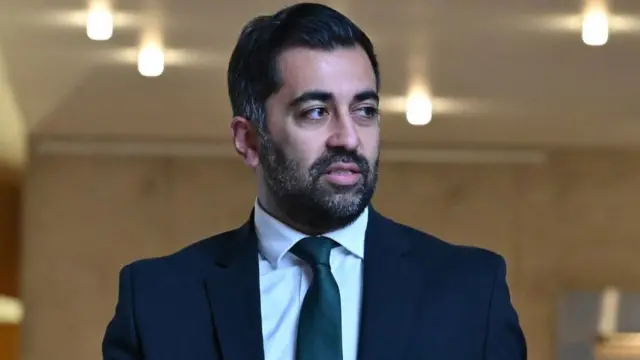 Image source, Getty Images
Image source, Getty ImagesAs we've been reporting, Martin Reynolds - who headed the private office of the prime minister during the pandemic - told the inquiry earlier that he turned on the "disappearing messages" function in a WhatsApp group of top officials in April 2021.
While he was speaking, Scotland's First Minister Humza Yousaf has said he did not delete WhatsApp messages relating to the Covid-19 pandemic.
Senior government figures during the pandemic, including former First Minister Nicola Sturgeon, have been accused of wiping messages or using an auto-delete function.
Yousaf said it was "certainly not true" that he had removed messages, adding that his government would "fully" comply with both the UK and (separate) Scottish Covid inquiries.
Yousaf - who served as Scottish health secretary from May 2021 before becoming first minister in March 2023 - said government figures were not told to delete messages and that his administration had provided about 13,000 documents to the inquiries.


